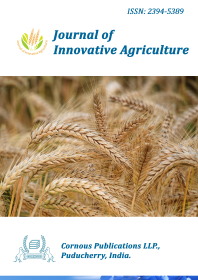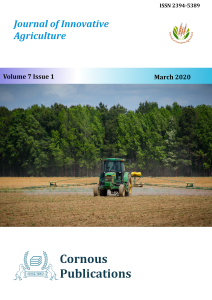
Journal of Innovative Agriculture
Peer Reviewed Open Access Journal
ISSN: 2394-5389 NAAS: 4.05
Submit Manuscript
Peer Reviewed Open Access Journal
ISSN: 2394-5389 NAAS: 4.05
Submit ManuscriptOPEN ACCESS | Published on : 30-Mar-2020 | Doi : 10.37446/jinagri/rsa/7.1.2020.1-4 | Pages : 1-4
OPEN ACCESS | Published on : 30-Mar-2020 | Doi : 10.37446/jinagri/7.1.2020.5-8 | Pages : 5-8
